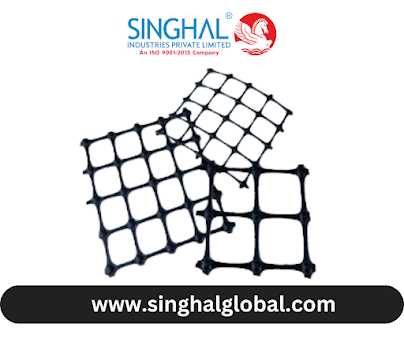Enhancing Filtration Efficiency with PP Spunbond Nonwoven Fabric: A Deep Dive into Singhal Industries
In the realm of packaging and filtration, Singhal Industries - Manufacturer of Flexible Packaging, stands as a beacon of excellence. Renowned as one of the most admired and leading packaging companies in India, they have consistently enriched the industry by striving to achieve the highest global standards of quality and service to the community at large. Among their noteworthy contributions is their expertise in the production and supply of Polypropylene Spunbond Nonwoven Fabric, a material that plays a pivotal role in enhancing filtration efficiency for both air and water applications.
Understanding Spunbonded Nonwoven Fabric:
Before delving into the specifics of Polypropylene Spunbond Nonwoven Fabric, let's first grasp the fundamentals of Spunbonded Nonwoven Fabric. Unlike traditional fabrics, nonwoven fabrics are created by bonding or interlocking fibers together, eliminating the need for weaving. This unique method results in a versatile material that finds applications in various industries.
The Role of Spunbond Nonwoven Fabric in Filtration:
Singhal Industries specializes in providing Spunbond Nonwoven Fabric that is tailored for filtration purposes. This type of nonwoven fabric is characterized by its web-like structure, created through a process that involves extruding, stretching, and bonding polypropylene fibers. The end product is a material with exceptional strength, durability, and filtration capabilities.
Advantages of Polypropylene Spunbond Nonwoven Fabric in Filtration:
High Filtration Efficiency:
The structure of Polypropylene Spunbond Nonwoven Fabric ensures a high level of filtration efficiency. The interlocking fibers create a barrier that effectively captures particles, making it an ideal choice for air and water filtration systems.
Durability and Longevity:
The inherent strength of polypropylene fibers contributes to the durability of the fabric. This ensures that the filtration media remains intact and effective over an extended period, reducing the need for frequent replacements.
Chemical Resistance:
Polypropylene is inherently resistant to many chemicals, making it suitable for filtration applications where exposure to various substances is a concern. This resistance enhances the material's lifespan and reliability.
Breathability:
Despite its dense structure, Polypropylene Spunbond Nonwoven Fabric maintains breathability, allowing for optimal airflow. This is crucial in air filtration applications where maintaining a balance between filtration efficiency and airflow is essential.
Singhal Industries: Pioneers in Spunbond Nonwoven Fabric Supply:
Singhal Industries has carved a niche for itself as a reliable Spunbond Nonwoven Fabric Supplier. Their commitment to quality and customer satisfaction has positioned them as leaders in the industry. By consistently delivering products that meet or exceed global standards, they have garnered a reputation for excellence.
Nonwoven Without Plastic: A Sustainable Choice:
In the era of sustainability, the choice of materials plays a significant role. Singhal Industries recognizes this and offers Polypropylene Spunbond Nonwoven Without Plastic. This not only aligns with environmental concerns but also positions their products as a sustainable choice in filtration applications.
Conclusion:
In conclusion, Singhal Industries Pvt. Ltd. emerges as a frontrunner in the world of packaging and filtration, with their commitment to excellence and sustainability. The Polypropylene Spunbond Nonwoven Fabric they supply stands as a testament to their dedication to quality and innovation. As industries increasingly seek sustainable and efficient filtration solutions, Singhal Industries remains at the forefront, shaping the landscape with their cutting-edge products.
Frequently Asked Questions(FAQs)
Q1: What is the key advantage of Polypropylene Spunbond Nonwoven Fabric in filtration applications?
A1: The key advantage lies in its high filtration efficiency. The web-like structure of the fabric effectively captures particles, making it suitable for air and water filtration systems.
Q2: How does Singhal Industries ensure the quality of their spunbond nonwoven fabric?
A2: Singhal Industries is committed to achieving the highest global standards of quality. They employ rigorous testing and quality control measures throughout the manufacturing process to ensure the reliability and performance of their products.
Q3: Why is choosing nonwoven without plastic important for filtration applications?
A3: Choosing nonwoven without plastic is crucial for sustainability. Singhal Industries offers Polypropylene Spunbond Nonwoven Fabric without plastic, aligning with environmental concerns and offering a more eco-friendly solution.
Q4: Can Polypropylene Spunbond Nonwoven Fabric withstand exposure to chemicals?
A4: Yes, Polypropylene is inherently resistant to many chemicals, making the fabric suitable for filtration applications where exposure to various substances is a concern.

.png)
Comments
Post a Comment